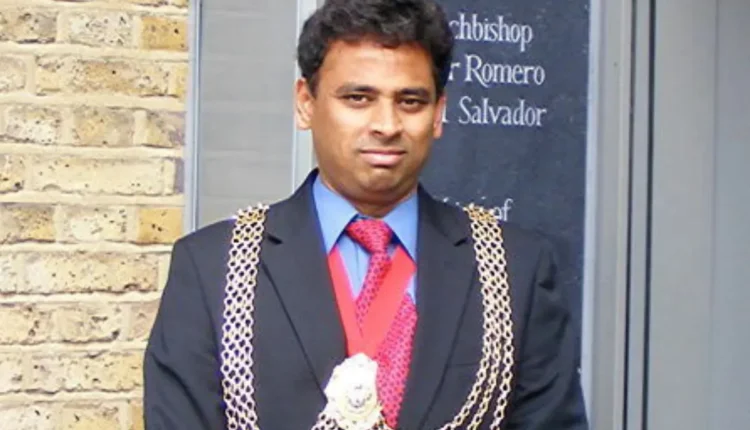In the world of politics and medicine, few figures are as inspiring and impactful as Dr. Neeraj Patil. A British doctor and Labour Party politician, Patil’s journey from the Indian state of Karnataka to becoming the first mayor of Asian origin in the London Borough of Lambeth is a story of perseverance, dedication, and unwavering commitment to service.
Early Life and Education of Neeraj Patil
Neeraj Patil hails from Karnataka, a state known for its rich cultural heritage and intellectual legacy. Growing up in India, Patil was instilled with a deep sense of community and a desire to make a difference. This passion for service led him to pursue a career in medicine, a field where he believed he could have a direct impact on people’s lives.
Patil’s medical journey took him to the Royal College of Surgeons of Edinburgh, where he completed his fellowship. This prestigious institution provided him with the skills and knowledge necessary to excel in the medical field. He later served as a Consultant in Emergency Medicine at Worthing Hospital, where he was an integral part of the KWASH campaign, fighting to preserve essential emergency services.
Political Career: A Milestone in Lambeth
Neeraj Patil’s entry into politics was marked by his election as a Councillor for the Larkhall ward in 2006. His dedication to his constituents and his effective leadership soon led to his election as the Mayor of the London Borough of Lambeth in 2010. This historic achievement made him the borough’s first mayor of Asian origin, a testament to his hard work and the trust placed in him by the community.
During his tenure as mayor, Patil’s leadership was characterized by a series of notable achievements. One of the most significant moments was welcoming Pope Benedict XVI during his official visit to London on 18 September 2010. This event not only highlighted Lambeth’s diversity but also underscored Patil’s role as a bridge-builder between different communities.
Another landmark achievement was overseeing the erection of a statue of the 12th-century Indian philosopher Lord Basavanna at the Albert Embankment Gardens. This initiative was a celebration of multiculturalism and a recognition of the contributions of Indian philosophy to the world.
Advocacy and Recognition
Neeraj Patil’s contributions extend beyond his mayoral tenure. In 2008, he was honored with the “Rajyotsava Award” by the Government of Karnataka for promoting accountable democracy in India. This prestigious award is a reflection of his commitment to fostering democratic values and his efforts to build stronger ties between India and the UK.
The Parliamentary Campaign
In 2017, Neeraj Patil made history again by becoming the first Kannadiga individual to run for the House of Commons, campaigning to become the MP for the constituency of Putney. Although he lost to Education Secretary Justine Greening by 1,554 votes, he achieved a significant swing of 10.2% in favor of the Labour Party. This campaign showcased his tenacity and his ability to mobilize support on a large scale.
Commitment to Integrity
In 2018, Neeraj Patil demonstrated his commitment to integrity and accountability by filing a complaint against Labour MP Virendra Sharma for the improper use of parliamentary facilities. The House of Commons authorities upheld his complaint, a move that reinforced the importance of ethical conduct in public office.
Recent Endeavors
In August 2022, Neeraj Patil continued his political journey by applying to contest Bassetlaw in Nottinghamshire as the Labour Party candidate for the 2024 United Kingdom general election. Although his application was unsuccessful, his persistence in seeking public office remains a source of inspiration.
A Legacy of Service
Beyond his political roles, Neeraj Patil has served as a Governor of Kings College Hospital (2006–2007) and St Thomas Hospital (2008–2010). His involvement in these institutions underscores his commitment to healthcare and community welfare. As a member of the National Policy Forum of the Labour Party (2013–2015) and the National Executive BAME Labour (2009–2013), he has played a crucial role in shaping policies that promote inclusivity and equality.
Also Read:Divya Saxena: Inspiring the Next Generation of Women Cricketers

